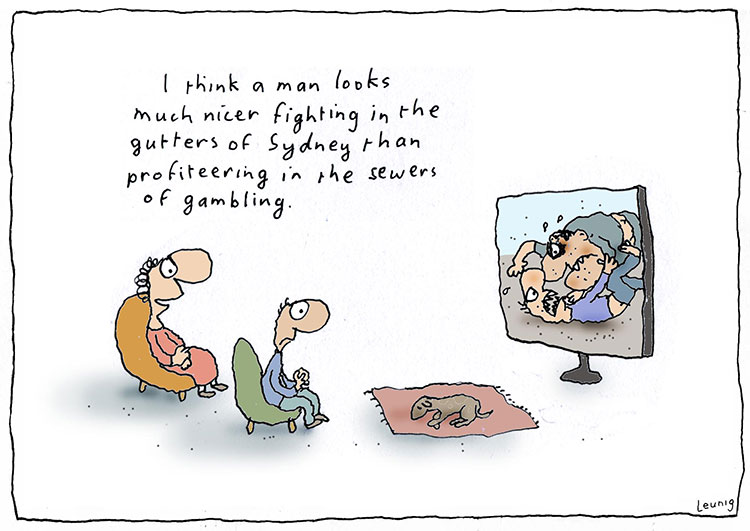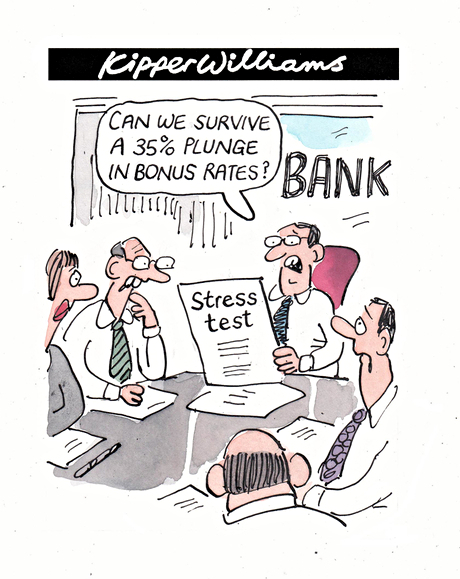
Here's my Top 10 items from around the Internet over the last week or so. As always, we welcome your additions in the comments below or via email to bernard.hickey@interest.co.nz.
See all previous Top 10s here.
My must reads today are #2 and #3 on the choices Bloomberg made in China and the different culture of public life there. Profound and topical.
1, No worries mate - Serious people in Australia are now openly talking about how a flood of investment from China in Australian property is pushing up prices there.
They're even saying the weight of cash investment is so great that hikes in the Official Cash Rate over there will be a waste of time.
UBS' regional chief investment officer for the Asia Pacific, Kelvin Tay, told a business audience in Sydney last week that this weight of money was a public policy issue for Australia and he suggested Hong Kong style taxes to blunt the impact on property prices.
At least there is a serious debate in Australia fueled by some official data.
In New Zealand we have nothing. It's actually less than nothing now that Tony Alexander has stopped collecting the data from his REINZ survey.
That's a pity. Winston is about to barge into this vacuum during the election campaign. Buckle up people.
Here's Tay on the issue in Australia via the SMH:
"Australia has had a spate of robust capital city housing data in recent months, but Chinese buyers have been pushing prices up.
"Rate hikes will now be an ineffective tool to push down property prices and that is why UBS does not think the RBA should do it."
Instead, Australia should consider introducing other regulatory reforms designed to mitigate the risk of a housing bubble, he said.
"Australia should follow the lead of jurisdictions like Hong Kong that have successfully introduced tax reforms that target people who buy and sell investment properties," Mr Tay said
2. No worries comrade - For the sake of balancing out the fears about a hard landing in China, here's Wayne Arnold in this WSJ China Real Time blog reporting on the IMF's views and giving three reasons why China is unlikely to have an economic crisis.
1. China’s owes most of its debt to itself. True, China’s debt – some tallies put the sum of private and government debt at double China’s gross domestic product – is scary. But unlike Thailand or South Korea before the Asian financial crisis erupted in 1997, China hasn’t borrowed heavily abroad in foreign currencies. China’s total foreign debt amounts to only about 9% of its GDP, according to the country’s foreign-exchange regulator. South Korea’s was roughly one-third of GDP back in 1997.
2. China’s government debt is low. Like many governments in advanced economies, Beijing runs a budget deficit. But that deficit is relatively small – about 2.1% of GDP. And total government debt, both those owed by the national government and China’s much more heavily indebted provinces, still add up to only about 53% of GDP, according to Bank of America Merrill Lynch. Compare that with the U.S., where government debt is roughly as big as GDP, or Japan, where government debt has ballooned to roughly 240% of GDP.
That means China can afford to spend more to offset the economic slowdown if it becomes too painful to borrowers. It can even afford to bail out banks or borrowers it deems too big to fail. In the worst case scenario, China’s central bank can follow the lead of the U.S. Federal Reserve and the Bank of Japan and create money by buying up assets – a policy known as quantitative easing. “If something bad happens, they will muddle through,” said Mr. Rhee.
3. China’s slowdown, like its economy, is central planned. While it’s easy to overestimate the degree of control Communist Party leaders have over economic decision making on the ground, they nonetheless are able to exert their influence in a way that policy makers in the United States and other democratic nations can only envy.
3. Bloomberg in China - This Columbia Journalism Review piece on how Bloomberg has pulled back from hard-hitting investigative pieces on the networks of family wealth around senior Chinese officials is a fascinating insight into the clashes between the business and political cultures in China and the Anglo-Saxon worlds.
The crisis blew into public view last November when The New York Times, followed by the Financial Times and others, reported that a big, new enterprise project from Bloomberg, said to have documented an extensive web of corrupt ties between one of China’s wealthiest businessmen and elite politicians, had been spiked at an unusually late stage in the editing process. The reported spike came after an extensively footnoted version of the story had been fact-checked and pored over by company lawyers, and after members of the reporting team had been praised internally for yet more stellar work.
The Times reported that Winkler, in a conference call with reporters, defended the decision not to publish the story by likening the situation to the need for self-censorship by foreign bureaus in Nazi Germany to preserve their ability to continue reporting there. That reasoning was controversial enough, but a Bloomberg executive would later let slip a motive that was even more problematic.
4. China's Censored World - Further to that theme, this piece in the New York Times by Evan Osnos also gives a good insight into the worlds of publishing and public debate in China. It is a very different country.
The defining fact of China in our time is its contradictions: The world’s largest buyer of BMW, Jaguar and Land Rover vehicles is ruled by a Communist Party that has tried to banish the word “luxury” from advertisements. It is home to two of the world’s most highly valued Internet companies (Tencent and Baidu), as well as history’s most sophisticated effort to censor human expression. China is both the world’s newest superpower and its largest authoritarian state.
5. We must not forget - America may be recovering now, but it's been an awful long time and it's still way too slow. We are continually surprised by the delays in the eventual increase in interest rates over there. That matters because it's all weakening the US dollar and strengthening ours.
This House of Debt chart tells the story of the Great Recession and just how painful it was and still is for America.
It is true that the recovery in GDP has been steady over the past couple of years – but it’s been steadily disappointing. The recovery out of the Great Recession looks dismal compared to earlier recoveries–we aren’t even close to the recoveries we’ve seen before. The short-run gyrations are gone, but the longer run issue of dismal growth is as important as ever.
Why has the recovery been so dismal? This has to be one of the central research questions for macroeconomics going forward. We have several candidates: (1) secular stagnation, (2) structural changes in the economy such as demographics (3) a Gordonesque pessimism on productivity growth (4) weak government spending, (5) heightened policy uncertainty, and (6) excessively tight monetary policy. These aren’t mutually exclusive.
But whatever your views, this is not a boring chart. Quite the opposite. This chart demands attention – and further research.
6. Costs, prices and wages - The costs of living these days are not uniform. Some things we absolutely must have such as shelter, electricity and health care, are much, much more expensive. Some things we need to have fun, such as TVs and iPads, have gotten much cheaper. This Atlantic piece is well worth a read.
7. A British property tax - This piece by Janan Ganesh in the FT raises the intriguing prospect that a Tory government could bring in a property tax to address the issues raised by Thomas Piketty.
Rational optimism should be the start of the Conservative response to Mr Piketty, then, but it cannot be the end of it. Inequality of earned income is one thing. Gross inequalities that flow from capital accumulation, especially of the inherited variety, are not something the right should defend. When Margaret Thatcher began her premiership 35 years ago this week, she was not aiming for a rentier economy of guileless property millionaires in which the most valuable skill is the cosmic luck to be born into the right family. Her service to her country was to save it from shambolic corporatism. But she also wanted to replace it with popular capitalism.
So the second half of the right’s response must be to concede this part of the egalitarian argument, and to act. Mr Piketty wants a global tax on wealth. But of course he does. More plausible is a gradual shift in the profile of national taxation from income to assets. In Britain, with the institutionalised pathology it calls a housing market, this means a property tax. This might be levied at the point of sale or charged annually. The tax might be incurred by houses worth more than, say, £1m (too low, some will grumble, but actually four times the average house price). The revenue would pay for the kind of tax cuts for which the coalition government has already shown some fervour: the rise in the personal allowance, the steady fall in corporation tax, the easing of national insurance. All incentives to work and create.
8. Great Nations of Europe - We're approaching the 100th anniversary of the diplomatic countdown/shambles that led to World War One.
Back then there was no question which side we'd be on. I'm not suggesting the mess in the Ukraine is anything like what happened back then, but there is a fair amount of relaxation about how Western Europe will handle all this tension in Eastern Europe right now.
Our relationship and dependence on Europe and Britain is much less clear than than it was back in 1914 (and 1939). Graeme Wheeler made that clear indirectly yesterday when he pointed out the UK now buys just 0.3% of our dairy exports. China buys north of 35% of our dairy exports.
So I thought this Randy Newman song on those Great Nations of Europe is worth a listen, if only for us to be sceptical of Western Europe's great talents and qualities. HT David.
9. Take-off and touchdown - I've put this video in because it's cool and shows how new technology can do amazing things. HT Elon Musk
10. Just to cheer you up - Here's the 'Everything is Awesome' song from the Lego Movie. Fun movie. I'll never think of the words 'think-tank' and 'micro-manager' in the same way.
3 Comments
Heck Bernard your Top Ten is looking a bit lonely. 8 Hours without a comment....
....but Scarfie is here to save the day :-)
Can't believe we're the last country to control foreign capital inflows into housing. Government is doing less that nothing, they're in denial mode. We could be redirecting that capital somewhere useful, like the Christchurch reconstruction, or newbuilds in general. Unfortunately there's not even an ambulance at bottom of the cliff. The tax revenue to pay for the ambulance was spent paying accommodation supplements to overseas landlords






We welcome your comments below. If you are not already registered, please register to comment
Remember we welcome robust, respectful and insightful debate. We don't welcome abusive or defamatory comments and will de-register those repeatedly making such comments. Our current comment policy is here.